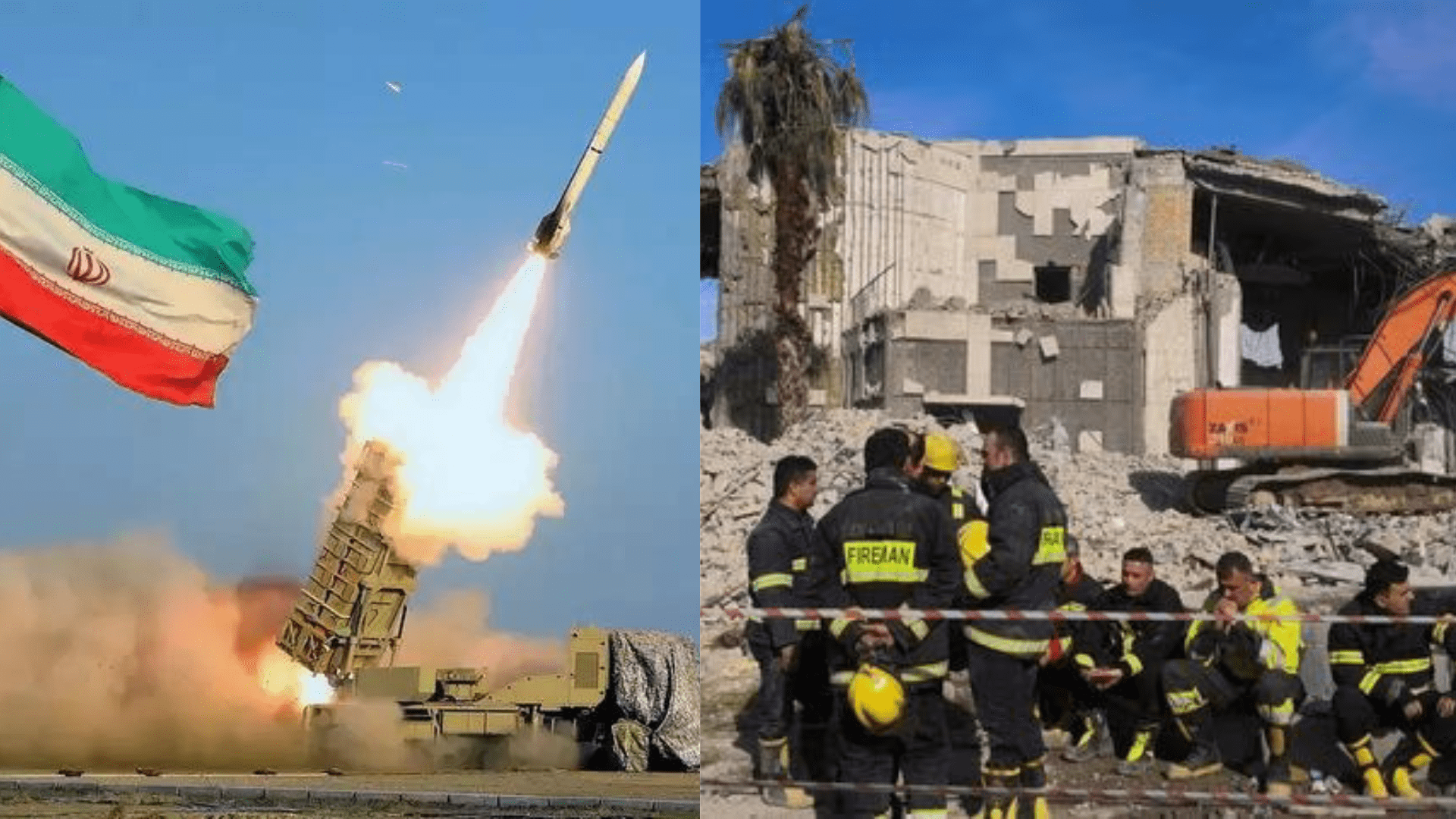In recent times, the question of “why Iran would attack Pakistan” has sparked concerns and speculations. Understanding the dynamics between these two nations requires a deep dive into their historical, economic, and security ties. This article aims to unravel the intricacies of Iran-Pakistan relations, exploring the factors that could potentially lead to such an extreme measure.
Introduction
Iran and Pakistan, two neighboring countries, share a complex relationship shaped by history, economic interests, and security concerns. Recent events have triggered questions about the possibility of Iran attacking Pakistan. To comprehend the situation, we need to dissect the layers of their relationship and evaluate various factors contributing to the speculations.
Historical Context
Iran and Pakistan share a multifaceted historical relationship that has been shaped by political, cultural, and economic factors. The historical context is crucial in understanding the dynamics of their interactions. Iran has supported Pakistan during significant events, such as the Indo-Pakistani War of 1971, reflecting the historical cooperation between the two nations. However, the relationship is not without its challenges, and the evolving nature of their ties reflects the complexities inherent in geopolitical dynamics.
Iran and Pakistan share a complex history shaped by geopolitical, religious, and strategic considerations. Key points include:
- Post-Independence Cooperation (1947): Iran was the first country to recognize Pakistan after its independence in 1947, establishing diplomatic relations. This recognition laid the foundation for bilateral ties.
- Strategic Alliances: Both countries have collaborated on various regional and international platforms. They were key partners during the Cold War, with shared interests in countering Soviet influence in the region.
- Religious Affiliations: The religious factor plays a significant role due to the Sunni-Shiite dynamic. Iran, a predominantly Shiite nation, has at times supported Shiite communities in Pakistan, influencing the religious landscape.
- Challenges and Inconsistencies: Despite historical ties, the relationship has faced challenges and inconsistencies. Issues like the Iran-Iraq War, sectarian tensions, and divergent regional policies have strained relations.
- Balochistan Dynamics: The Balochistan region, spanning both countries, has been a focal point. Baloch insurgencies, regional instability, and accusations of cross-border interference have added complexity to the relationship.
- Strategic Balancing Act: Pakistan has navigated a delicate balancing act between its ties with Iran and its alliance with Saudi Arabia, given the broader Sunni-Shiite divide in the Muslim world.
Economic Interests

The economic interests between Iran and Pakistan have been a focal point in their bilateral relations. Both countries have ambitious plans to increase bilateral trade significantly. The goal is to boost their trade to five billion dollars by 2023, reflecting a mutual commitment to enhancing economic cooperation. Additionally, Pakistan and Iran have agreed to strengthen cooperation in the energy sector, emphasizing the importance of collaborative efforts for mutual economic gain.
The economic dynamics are influenced by shared goals and opportunities for cooperation. Exploring these opportunities becomes essential as both countries work towards realizing their enormous economic potential. However, recent developments, such as Iranian air attacks, may impact the economic landscape and could potentially influence Pakistan’s alignment with other nations, including the United States, Saudi Arabia, and Turkey.
Iran and Pakistan share economic interests that have contributed to cooperation in various sectors. Historical and strategic factors have influenced their relationship:
- Energy Cooperation: Iran and Pakistan have engaged in energy collaboration, including discussions on the Iran-Pakistan Gas Pipeline (commonly known as the IP pipeline) to address Pakistan’s energy needs.
- Trade and Investment: Both nations aim to enhance bilateral trade and investments. Economic collaborations cover diverse sectors, including agriculture, infrastructure, and technology.
- Geopolitical Alignment: Economic cooperation is influenced by geopolitical considerations. Both countries have a shared interest in regional stability and countering common challenges, fostering economic ties.
- Strategic Partnerships: Iran’s role in the China-Pakistan Economic Corridor (CPEC) and its potential alignment with broader regional economic initiatives contribute to shared economic goals.
- Challenges and Opportunities: Economic cooperation faces challenges, including sanctions on Iran affecting trade dynamics. However, efforts persist to overcome obstacles and explore opportunities for mutual economic benefit.
Security Concerns
Recent events have escalated security concerns between Iran and Pakistan. Iran’s alleged violation of Pakistani airspace and subsequent missile strikes, resulting in casualties and damage, has strained relations. Pakistan has condemned the attacks, labeling them as an “unprovoked violation” and an “illegal act”.
The situation has prompted Pakistan to weigh its options for a response, indicating a delicate security dilemma. The incident occurred in the restive Baluchistan region, exacerbating tensions and posing potential challenges for both nations’ security dynamics. The attack damaged a mosque in Baluchistan’s Panjgur district, emphasizing the impact on local communities and stability.
Iran has claimed the strikes targeted strongholds of a Sunni militant group, signaling complexities in the region’s security landscape. As both countries navigate the aftermath, the potential for serious consequences and the need for diplomatic resolutions underscore the gravity of the security concerns arising from the recent events.
Iran’s motivations for conducting air strikes in Pakistan’s Balochistan province are complex and may involve several security-related considerations:
- Counterterrorism Operations: Iran aims to address security threats posed by militant groups operating near its border in Pakistan. The airstrikes targeted bases of groups allegedly involved in attacks against Iranian security forces.
- Regional Stability: Iran, concerned about regional stability, may perceive militant activities in Pakistan as a potential source of insecurity. Addressing these issues preemptively aligns with Iran’s broader security interests.
- Internal Security: Tehran’s actions might be driven by a desire to maintain internal security and prevent cross-border militant activities that could potentially spill over into its territory.
- Historical Context: Past incidents of cross-border attacks and conflicts in the Balochistan region might contribute to Iran’s proactive stance to secure its borders and prevent future threats.
- Strategic Considerations: The geopolitical landscape and Iran’s relations with Pakistan may influence its security decisions. Balancing its security concerns with diplomatic considerations is crucial.
Terrorism and Extremism
The current geopolitical landscape raises concerns about the potential for increased terrorism and extremism, including the possibility of Iran launching attacks on Pakistan. Recent events, such as Iran’s missile strikes on Pakistani territory, underscore the complexities in regional relations. Pakistan has condemned these attacks, emphasizing the shared threat of terrorism and the need for collective efforts to address it.
Analysts suggest that state-sponsored terrorism remains a global threat, with Iran often identified as a state sponsor of terrorism. The strategic goals of supporting extremist groups can lead to regional instability and heightened security risks. Iran’s involvement in supporting violent substate groups, coupled with the complex dynamics of the region, contributes to the potential for increased extremism and terrorism.
As the international community grapples with the evolving landscape of extremism, organizations like the Global Counterterrorism Forum and initiatives such as the Task Force on Extremism in Fragile States work towards preventing and countering violent extremism globally. Monitoring geopolitical flashpoints, including those identified in reports on instability in 2024, becomes crucial in understanding and addressing the threat of terrorism and extremism on a global scale.
The recent missile strike by Iran on Pakistan’s territory is attributed to concerns related to terrorism and extremism. Several factors contribute to Iran’s motivations for such actions:
- Militant Presence: Iran claims the missile strike targeted strongholds of a Sunni militant group in Pakistan’s Balochistan province. Addressing the presence of militants near its border is a primary concern for Iran’s national security.
- Cross-Border Threats: The attack may be seen as a preemptive measure to counter potential cross-border threats from militant groups that could undermine Iran’s internal security and stability.
- Regional Security Dynamics: Given the broader regional security dynamics, Iran may view addressing extremism in neighboring countries as essential to preventing the spillover of violence and instability into its territory.
- Historical Tensions: Historical incidents of cross-border militant activities may contribute to Iran’s proactive stance, reflecting a commitment to safeguard its borders and prevent future threats.
- Geopolitical Considerations: Iran’s geopolitical interests and alliances in the region may influence its response to extremism. Balancing regional power dynamics and protecting its strategic interests are integral to Iran’s decision-making.
Border Disputes
Recent border tensions between Iran and Pakistan have escalated, marked by Iranian missile and drone strikes on Baluchi militant bases along the border. The situation raises concerns about the motivations behind Iran’s actions. The Iran-Pakistan border region has been a source of tension, with Iran alleging that remote border towns on the Pakistani side harbor Sunni Baloch militants. This claim has led to Iranian forces firing mortars into these towns, contributing to the strained relations.
Past incidents and ethnic tensions, particularly related to the Baloch population in both Pakistan’s Balochistan and Iran’s neighboring regions, have added complexity to the border disputes. The attack by Iran is believed to be a retaliatory move in response to a previous assault on an Iranian police station. The broader context includes concerns about terrorist activities, smuggling, and illegal immigration across the border.
Role of International Players Why Iran Would Attack Pakistan
The recent Iranian airstrikes in Pakistan stem from Iran’s accusations that Pakistan harbors and supports militant groups involved in cross-border attacks. Iran claims that these groups, such as Jaish ul-Adl, find refuge in Pakistan, leading to heightened regional tensions. The specific role of international players in these events is not explicitly outlined in the provided search results.
However, there are concerns that such actions could prompt shifts in geopolitical alignments. Some analysts suggest that Iran’s air attacks might push Pakistan towards seeking greater alignment with the United States, Saudi Arabia, and Turkey as a response to what Pakistan perceives as unacceptable Iranian aggression.
It’s essential to monitor diplomatic responses and international involvement to fully understand the evolving dynamics between Iran and Pakistan.
Nuclear Concerns
Iran’s recent missile strikes targeting alleged militant bases in Pakistan have escalated tensions between the two nations. While Iran claims the strikes were aimed at militant groups, Pakistan vehemently condemns them as unprovoked and has reported casualties, including the tragic death of two children. This incident not only raises immediate security concerns but also sparks nuclear apprehensions due to the nuclear capabilities of both Iran and Pakistan.
The situation demands careful diplomatic navigation to prevent further escalation. International actors are closely monitoring the developments, and the recall of Pakistan’s ambassador to Tehran signals the severity of the issue. The nuclear capabilities of both countries intensify concerns, requiring a delicate balance to avoid any inadvertent consequences.
Potential Trigger Points
While there is no explicit indication that Iran is planning a direct attack on Pakistan, several potential trigger points have heightened regional instability:
- Balochistan Unrest: The Balochistan region, shared by both Iran and Pakistan, has witnessed separatist movements. Baloch militants have been active in the region, and any escalation could prompt cross-border actions.
- Militant Activities: The presence of militant groups, such as Jaish al-Adl, has been a source of contention. Iran’s actions may be influenced by perceived threats from these groups operating along the border.
- Border Incidents: Past border incidents, such as clashes between Iranian and Pakistani border guards, can contribute to heightened tensions. These incidents may serve as triggers for more significant conflicts.
- Proxy Dynamics: The broader geopolitical context, involving Iran’s relationships with other regional and global players, can influence its actions. Proxy conflicts and alliances may impact Iran’s approach toward Pakistan.
- Internal Security Concerns: Iran may view perceived security threats emanating from its neighbor as a reason for preemptive actions, particularly if it believes that militant activities could destabilize its internal security.
Global Ramifications
The recent Iranian airstrikes on alleged militant bases in Pakistan have potential global ramifications that could impact regional stability and international relations. Key points include:
- Regional Destabilization: An escalation in Iran-Pakistan tensions could destabilize the region, impacting neighboring countries and complicating efforts for peace and security.
- Proxy Dynamics: Given the complex geopolitics of the Middle East, an Iran-Pakistan conflict may draw in regional powers, leading to proxy conflicts with broader implications.
- Energy Markets: The region is critical for global energy markets, and any disruption due to heightened tensions may affect oil prices and supply chains globally.
- Nuclear Concerns: Both Iran and Pakistan possess nuclear capabilities. A conflict raises concerns about the potential use or threat of nuclear weapons, triggering international alarm.
- Humanitarian Crisis: Increased hostilities could lead to a humanitarian crisis, displacing populations and requiring international assistance.
- Diplomatic Strain: The international community would face challenges in mediating the conflict, and diplomatic relations could be strained, impacting global cooperation on various fronts.
- Impact on Security Alliances: Existing security alliances, such as those involving the United States, could be tested as nations navigate their responses to the conflict.
Conclusion
In conclusion, the question of “why Iran would attack Pakistan” is multifaceted. It involves historical, economic, security, and cultural dimensions, all of which contribute to the complex relationship between these two nations. While speculations may arise, the call for peaceful resolutions and diplomatic dialogue remains paramount.
Read also: How Cold Does It Have to Be to Cancel School? The Chilling Truth
FAQs
Q. Is there a history of military conflicts between Iran and Pakistan?
No, both nations have generally maintained peaceful relations, with occasional tensions over border disputes.
Q. How do economic ties contribute to Iran-Pakistan relations?
Economic collaborations, including trade agreements and joint ventures, have been pivotal in fostering a stable diplomatic relationship.
Q. What role do global powers play in shaping Iran-Pakistan relations?
Global powers influence the diplomatic landscape, impacting the dynamics between Iran and Pakistan.
Q. How has terrorism affected Iran-Pakistan relations?
Both nations have faced the impact of terrorism, leading to joint efforts to combat extremist elements and strengthen their ties.





Nice information 💯✨💯💯✨✨✨✨✨✨✨✨✨✨✨💯🌟